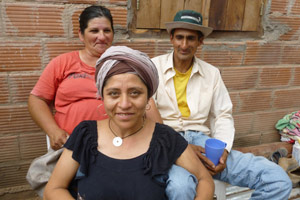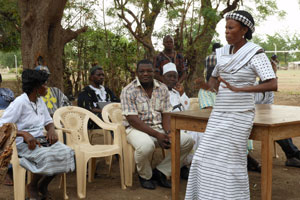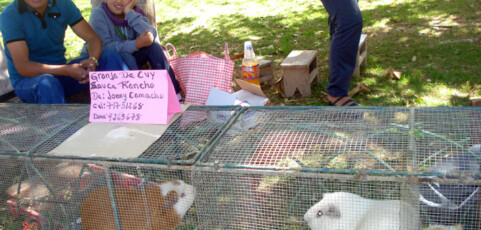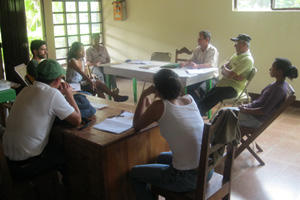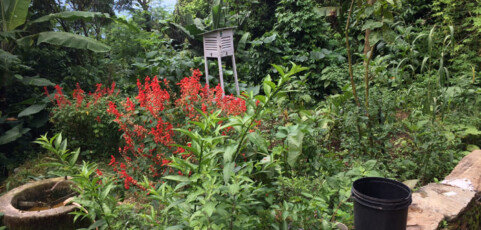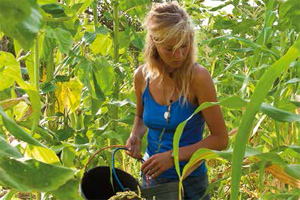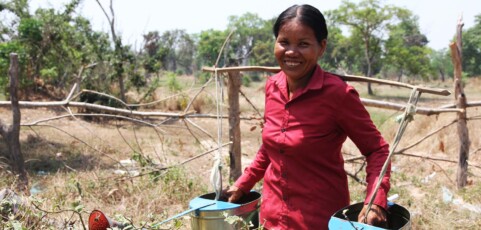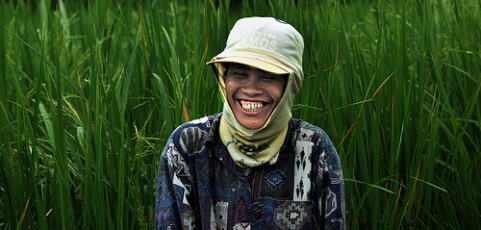About 23 years ago, in Santiago del Estero, a province in the north of Argentina, the Peasant Movement of Santiago del Estero Via Campesina (MOCASE -VC) was established. One of its leaders is Deo Sumaj, an impressive peasant woman of the Vilela indigenous people. “Peasant family farming could provide many answers to the crises that humanity faces.”
Food fairs revive local food and nutrition
Food fairs are an important tool and space to promote food sovereignty as they take place in local public spaces and within people’s own socio-cultural settings. One excellent example was a food fair in Ghana, organised by the Centre for Indigenous Knowledge and Organisational Development (CIKOD). Women farmers exhibited traditional crops and foods, emphasising their importance for local and national food and nutrition security. The fair reminded community and political leaders of the value of neglected traditional foods. Some years later, it can be seen how this and subsequent food fairs helped to ensure the improved integration of traditional foods and agroecological farming into national food security plans.
Guinea pigs – small livestock with big potential
The right to food sovereignty is a part of the Plurinational State of Bolivia’s constitution, but what does this actually mean for family farmers? The truth is that many people in rural areas are far from having access to adequate food and nutrition, with 37% of children under five reported to be suffering from stunting caused by malnutrition. Amongst the institutions and initiatives that aim to improve food security and sovereignty, the cuy (or guinea pig) project stands out for the inroads it has made towards improving food and nutrition at the family level.
Youth and agriculture: German youth struggle for land
‘Land grabbing’ has grabbed people’s attention in recent years, but this phenomenon is not restricted to developing countries. In the heart of Europe, young German farmers like Paula Giola are also struggling to retain and regain access to farmland.
Peasant to peasant: The social movement form of agroecology
After the electoral defeat of the Sandinistas in 1990, former land owners returned to Nicaragua from the USA. They began to take back their former estates through legal and less than legal manoeuvering, driving many rural people off the land they had been cultivating. This ‘agrarian counter-reform’ as it became known, left many hundreds of people landless in its wake during the 1990s and early 2000s. Now a national union has adopted agroecology and is leading the way for peasant farmers to collectively work their way out of poverty and towards a more resilient model of agriculture.
Nutrition from innovation and taste from waste
From a situation of widespread undernutrition, consuming fresh vegetables all year round has now become a reality for many Nepali households thanks to their expanding home gardens. But the stories they tell show that the benefits of home gardens are not limited to improving household nutrition. The gardens also help to empower women and conserve biodiversity, two much needed conditions for better family and community nutrition on a broader scale.
Food justice moving forward in the USA
Opinion by Navina Khanna.
Navina Khanna introduces the food justice movement in the USA, and how from the corner shop to Capitol Hill, communities are making waves, and fighting for fairer policies in both corporate and governmental sectors.
Turning vicious circles into virtuous cycles
We have read about poverty, vulnerability and resilience of family farming. The articles in this issue of Farming Matters have shown that there is an urgent need for a change in mindset regarding family farming, agriculture and food systems. And resilience must be the central concept in this new thinking.
Climate Resilience Sustainable Agriculture Experiences
This document summarises case studies from ten countries through ActionAid’s approach to climate resilient sustainable agriculture, which incorporates agroecology in a human rights framework. Based on these experiences ActionAid recommends to increase investment in agroecology, as part of a comprehensive human rights based approach: Read more
Locally rooted: ideas and iniatives from the field
Family farmers and the many ways in which they contribute to food security, healthy landscapes and thriving rural communities can be supported in a number of ways. These are some initiatives from around the world.

